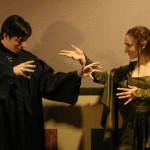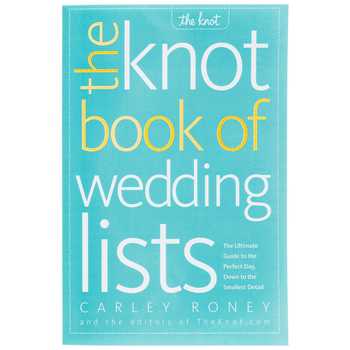This month, Libby Anne and Dan Finke are asking bloggers to comment on the purpose of marriage as part of their Forward Thinking linkup. And, in order to try to speak clearly, I’d like to riff off of a recent Modern Love column in the Times, where the unmarried author shared his experience officiating a friend’s wedding.
Because it was a secular wedding, the officiant and his friends had a lot of flexibility with the how of the ceremony, but the author of the essay seemed to be frighteningly at sea with regard to the what of what he was doing. He wrote:
There are two sentiments against marriage you’ll hear from certain 20-something wanderers like me. Either marriage is too serious a proposition for them or they are too cynical about marriage to take it seriously. Either they are afraid of how marriage will limit their options or they think you would be a fool to believe that marriage limits anyone’s options, so why bother?
These are contradictory arguments, and yet I find myself susceptible to both. When it came time to prepare my remarks, I wondered how disingenuous it would be for me to harbor such ambivalence and still get up to sermonize…
In marriage sermons, discussing Bible passages is a convention of the form, one unavailable to me. Because I wanted to anchor the proceeding in something more credible than myself, I told the story of the origin of love that Aristophanes gives in Plato’s “Symposium,” which claims that human beings were once powerful eight-limbed creatures until Zeus split us in two for daring to storm heaven, thus dooming us to forever search for our other half in order to be whole.
A bit of a cheat, because it’s a story about love and not necessarily about marriage. And it played well, though I avoided eye contact with the very Christian and newly divorced father of the groom while transforming his son’s wedding into a quasi-pagan ritual.
I love the Symposium as much as anyone (and if you’re not familiar with the myth referenced, you should watch this musical summary of it from Hedwig and the Angry Inch), but I was left in suspense by the question the author raised but did not answer. If a story about love isn’t necessarily a story about marriage, what remains to be added?
I tend to think that there’s a difference between love as something you feel and love as something you do, and marriage is the unique act of making an unrelated person part of our family. The author of the Times piece thought that, if someone said “Marriage limits your options” the two most plausible responses were to say “Not really” or to run. My response is more “Yes, and isn’t that wonderful?”
You’re choosing to let the love-you-do trump the love-you-feel from now on, because you want to care about this person and will their good, even if, in the moment, you don’t have a surge of emotions to spur you on. Or, to quote Fosca: “Loving you is not a choice, it’s who I am.” You’re placing the possibility of abandoning this person out of the sphere of your possible actions, just like flying.
Well, that’s what I mean to do, if I ever get the opportunity, anyway. Even after rereading the Modern Love piece a few times, I’m still not sure what that couple or their friend think they were doing. As the essayist writes:
Weeks later I was wondering whether Kate and John felt more officially like an eight-limbed monster. He and I met to play basketball, and I asked him how marriage felt.
“About the same,” he said. “I get to call her my wife. That’s cool. It’s a more accurate description of the situation anyway.”
I walked home that day, cold because I was underdressed, thinking that what John said appealed to me: marriage as a public admission of circumstances, as correct labeling, because the future will be uncertain regardless, and organizing in preparation has to be O.K.
I like the idea that marriage is the recognition of something that has already happened (I would say it’s an amen to and a sealing of a bond, not its creation), but what, exactly we’re recognizing shouldn’t really be left unspoken. When people lived in smaller, more unified communities, marriage was more of a Schelling point — everyone could be a little more confident that they shared the same basic idea of the institution (whether or not that idea was good).
But our age isn’t just multicultural. For a lot of people, it’s deracinated. We’re not rejecting/reacting against a specific tradition when we create new ceremonies and rituals. That means people may lack a vernacular or system of shared references, which makes it hard have a conversation (including conversations that are critiques of the vernacular you’ve got). This is why I tried to sidle up on discussions of marriage by using Sondheim as a jumping off point that we could all respond to. In this “Modern Love” story, the officiant doesn’t seems to have a way to learn from the couple exactly what he should mean when he says “Mawwiage…mawwiage is what bwings us together, today.“













